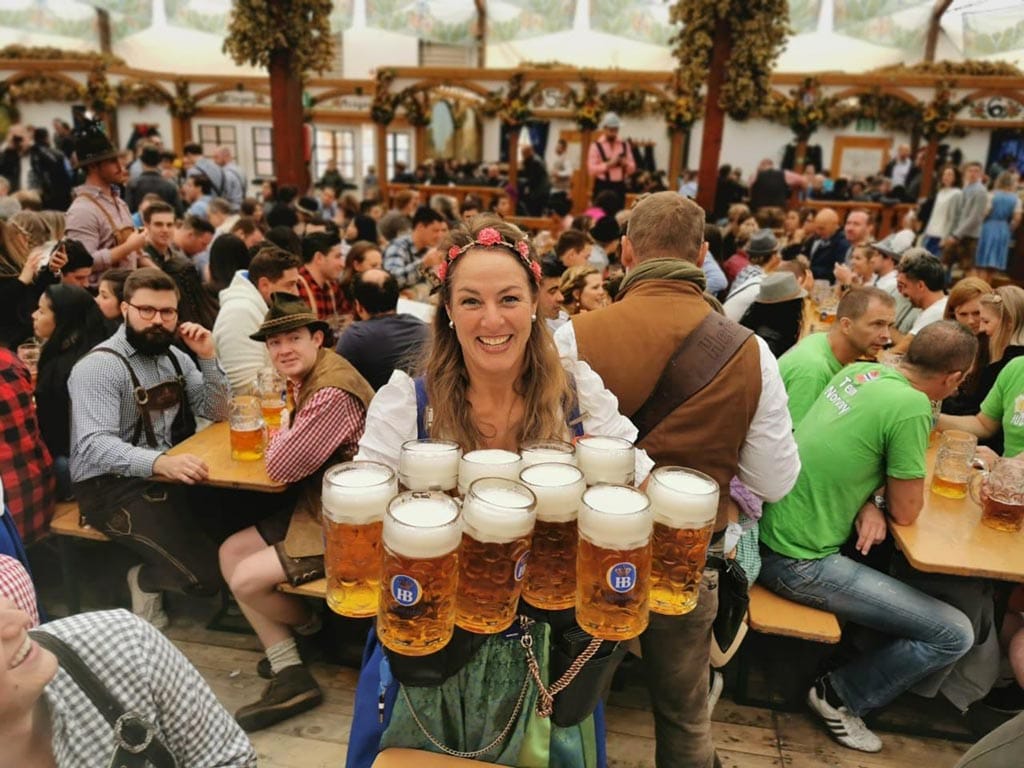Oktoberfest, Beer, and Depression: How Mental Health Affects Taste & Pleasure
From Oktoberfest beer to daily meals, depression reshapes taste and pleasure. Discover the science and how precision psychiatry offers hope.

Exploring how everyday pleasures, like attending Oktoberfest, can be dulled by Depression.
As Oktoberfest 2025 approaches, people around the world prepare to travel to Munich to celebrate the world’s biggest beer festival. But, for those living with depression, the joy of such experiences may feel distant, or even inaccessible.
Understanding how depression affects the experience of taste and flavor gives us an insight into how mental health disorders affect the overall human experience. Losing the ability to enjoy flavors due to depression means that natural sources of pleasure are made redundant. This highlights how depression is a self-perpetuating cycle where lack of sensory reward worsens emotional state.
How Depression Changes Taste and Pleasure
Key regions responsible for processing sensory rewards and decision-making, such as the orbitofrontal cortex and gustatory cortex, show reduced activity in people with depression (McCabe et al., 2009; Rolls, 2015).
Neuroinflammation, commonly present in depression, further disrupts taste receptor signaling pathways (Capuron and Miller, 2011), altering how flavors are perceived. Combined with the lack of dopamine and serotonin, common in depression, simple pleasures like food and drink become less rewarding.
Depression Alters the 5 Basic Tastes— How would this affect one’s experience at Oktoberfest?
Beer can taste sweet due to unfermented malts, bitter due to hops, sour due to wild yeasts, salty due to mineral-rich water, and dark beers have umami tastes.
Individuals with depression frequently report that sweet foods taste bland or emotionally unsatisfying. A study by Berlin et al. (2016) found that participants with major depressive disorder showed a 30% reduction in sweet taste sensitivity compared to healthy controls.
Some people living with depression show dulled responses to sour tastes, while others experience hypersensitivity, describing sour flavors as sharp or jarring (Duncan and Small, 2016). Salty tastes are often perceived as weaker or less noticeable. Bitterness on the other hand, is commonly intensified, making certain foods and drinks, like beers enjoyed at Oktoberfest, feel harsh or unpleasant. In a survey by the UK-based Mental Health Taste Project (2022), many participants described bitter flavors as “too sharp”. Umami—the savory taste found in richer foods and darker beers, can also bereduced in individuals experiencing appetite loss or gut-brain disruptions that often accompany depression (Morris et al., 2020).
Conclusion: Restoring Access to Everyday Pleasures
As we move toward Oktoberfest and other food festivals around the world, we must remember that not everyone experiences these joys equally. The pleasure of a beer festival becomes another dull experience due to depression-induced sensory changes. Furthermore, social anhedonia can arise from losing the pleasure of shared experiences, like drinking with others. This creates a vicious cycle. Muted sensory reward leads to withdrawal, which deepens depression, making joy feel even more inaccessible.
"Anhedonia is the reduced ability to experience pleasure, often affecting taste, social enjoyment, and everyday activities. In depression, this makes events like Oktoberfest less rewarding."
To break this cycle, we must treat depression not only as a mood disorder, but as a condition that affects every part of human physiology. Advances in precision psychiatry are helping clinicians understand why patients experience taste loss and anhedonia during depression. At NeuroKaire, we're committed to restoring these simple, essential pleasures. Our personalized treatment approaches can help restore what's been lost.
Learn how NeuroKaire's BrightKaire™ test uses brain-in-a-dish technology to restore taste, joy, and personalized care. Together, we can create a world where mental health is prioritized, and beer can be enjoyed equally by all.
References:
Berlin, I., Givry-Steiner, L., Lecrubier, Y. and Puech, A.J., 2016. Taste reactivity in depressed patients. Journal of Affective Disorders, 90(2-3), pp.179–184. https://doi.org/10.1016/j.jad.2005.11.021
Capuron, L. and Miller, A.H., 2011. Immune system to brain signaling: neuropsychopharmacological implications. Pharmacology & Therapeutics, 130(2), pp.226–238. https://doi.org/10.1016/j.pharmthera.2011.01.014
Der-Avakian, A. and Markou, A., 2012. The neurobiology of anhedonia and other reward-related deficits. Trends in Neurosciences, 35(1), pp.68–77. https://doi.org/10.1016/j.tins.2011.11.005
Duncan, M. and Small, D.M., 2016. Appetitive taste processing and the pathophysiology of major depressive disorder. Frontiers in Psychology, 7, p.1124. https://doi.org/10.3389/fpsyg.2016.01124
Garcia-Bailo, B., Toguri, C., Eny, K.M. and El-Sohemy, A., 2009. Genetic variation in taste and its influence on food selection. OMICS: A Journal of Integrative Biology, 13(1), pp.69–80. https://doi.org/10.1089/omi.2008.0031
McCabe, C., Woffindale, C., Harmer, C.J. and Cowen, P.J., 2009. Neural processing of reward and punishment in young people at increased familial risk of depression. Biological Psychiatry, 66(2), pp.146–152. https://doi.org/10.1016/j.biopsych.2009.01.024
Morris, G., Berk, M., Carvalho, A.F., Caso, J.R., Sanz, Y. and Maes, M., 2020. The role of microbiota and intestinal permeability in the pathophysiology of neuropsychiatric disorders. European Archives of Psychiatry and Clinical Neuroscience, 270(4), pp.447–461. https://doi.org/10.1007/s00406-019-00995-0
Rolls, E.T., 2015. Taste, olfactory and food texture processing in the brain and the control of food intake. Physiology & Behavior, 136, pp.181–189. https://doi.org/10.1016/j.physbeh.2014.12.020
Mental Health Taste Project, 2022. Survey on taste perception in depressive disorders. Unpublished research, UK-based NGO

